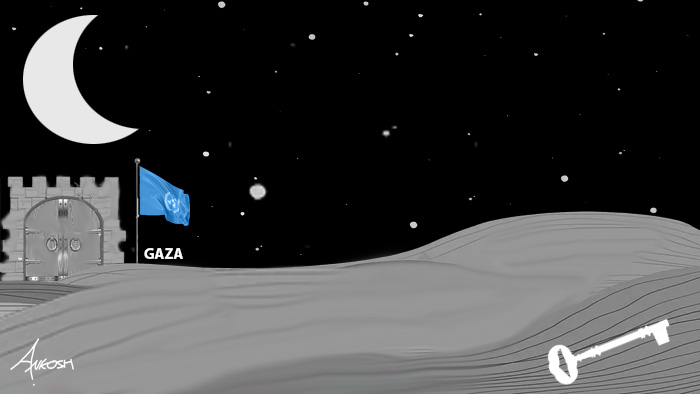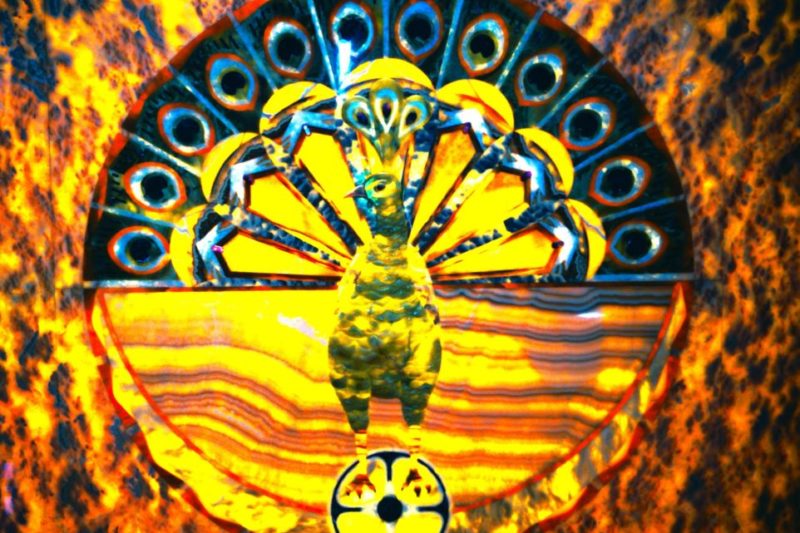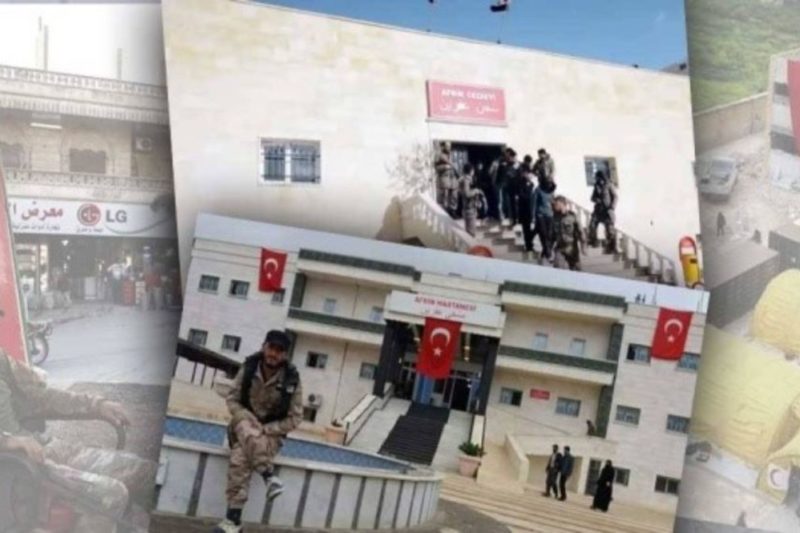‘Mo’: the first dark comedy that tackles question of Palestinian refugees

It is a Netflix drama mixed with comedy, but not just any comedy; the dark humour in the series ‘Mo’ revolves around the life of a Palestinian family who seek refuge in the United States to escape the Gulf War and try for 22 years to obtain legal asylum and official papers.
From the moment Mo’s family exits Kuwait after the war with Iraq, to the moment they flee to America, to the moment of the final decision to refuse their asylum, a whole life is lived by the family, during which it goes through a bitter experience of conflict between preserving identity and engaging in US society.
The series includes funny, tragic, and tearful moments. Still, the question is, has it succeeded in reflecting the lives of Palestinian refugees and the suffering they went through over the past few decades?
Mo’s story is told in eight episodes, written by Muhammad Amer, in partnership with Rami Youssef, and shown by Netflix.
It begins with Muhammad Mustafa al-Najjar, known as Mo, working in a mobile device maintenance centre. Suddenly the employer surprises Mo with the news that he must leave work immediately because the Immigration and Customs Administration has raided the store and imposed a heavy fine on him because Mo doesn’t have a permit or official papers. If he continues working, the department will permanently close the store.
As the only breadwinner for his family, his shock is profound. He did not expect his 20-year journey in the US – specifically in Houston, Texas – to end this way, especially after the bitter suffering that his family went through to obtain official papers as refugees. The delay in securing their status has left them living in a tragic and inhuman reality.
After being expelled from the store without telling his family, in order to keep supporting them he goes to work in a strip club. He is fired, then starts selling fake watches that he hides in the trunk of his car. At one point he is shot and refuses to go to the hospital because he does not have health insurance. So what is the solution?
Mo goes to receive medical treatment with an illegal immigrant, who in turn gives him codeine as a pain reliever, but in another turn of misfortune Mo becomes addicted to the drug.
Despite the crises and difficulties he is going through, he continues to tell jokes and make those around him laugh. This was the intention of those in charge of the series, as Muhammad Amer, the author and hero of the series, said in a televised interview with Al Jazeera.
The series tackles the Palestinian question, but at the same time it avoids interfering with the political discourse in every scene.
The desire of those in charge of the work was to stay away from the political presentation of the Palestinian cause, mainly since the series deals with the issue from a human perspective to explain to the viewers, without direct speeches, how the Palestinian lives without a state and how he fights for getting citizenship in another country.
Amer has succeeded to a large extent in this matter, perhaps because his personal experience is very similar to the story of Mo. Also a Palestinian born in Kuwait who waited more than 20 years to obtain US citizenship, for the last 20 years he has been denied travel because of the complexity of the system which allows asylum seekers to stay on US soil and to enter schools but does not allow them to work.
In order for them to apply through the courts, they face a long wait that can take years. During this period, the refugee does not possess a passport and therefore is not entitled to leave the US. To circumvent this complicated system, some immigrants resort to a well-known tactic, which is to marry an American woman, which is what Mo’s friend did to obtain citizenship.
The axes of the series does not stop at the Palestinian refugee cause only but deals with the story of the immigrant community in the United States in general, especially those who remain in the hope of obtaining citizenship. They work informally and descend from different cultures who feel isolated from the rest of American society.
The issue of asylum brings them together, so they form common friendships that are the cause of their multilingualism. Mo spoke three languages fluently: Arabic, English, and Spanish, and had a close friend from the immigrant community who stays with him in the most challenging moments.
The beautiful thing about directing the work is that Mo was not alone in presenting the Palestinian cause in a comic format; the essence of the whole work is a black comedy. The task is shared in funny scenarios involving his mother Yousra Najjar (actress Farah Bseiso), his autistic brother Samir (actor Omar Olba), and his mechanic girlfriend of Mexican origin, Maria (actress Teresa Ruiz), who, through his relationship with her, portrays the conflict of identity and religion. Mo’s mother categorically rejects his marriage to Maria because she is a Christian, and although Maria tells Mo that she has not seen him pray for two years, he insists on his position and asks her to convert to Islam so that they can marry.
The series also referred to the conflict of religion and identity by mentioning the story of Nadia, Mo’s sister, who boycotted him because she married an American to obtain citizenship. Here, we see confusion overshadowing Mo’s character. Although he is working in a strip club to earn his living, he remains committed to Islam as a cultural identity.
The story behind the olive oil bottle
Olive trees are considered one of the main agricultural crops in the Palestinian territories, mainly in the West Bank and Jerusalem. These trees are holy and ancient, and they are seen by many Palestinians as a symbol of nationalism, while it is connected to the Palestinian land, especially because of their slow growth and longevity. It is also mentioned in the Muslim holy book of the Quran.
Mo carries a small bottle of olive oil at all times. He takes it everywhere, to work and to the supermarket, producing it according to the situation, whenever he is hungry, or feels tired, and when fear invades him. Mo recites some supplications and Quranic verses, and then puts on a little olive oil. His mother asks him not to leave his bottle at all and to use it for headaches and insomnia.
The debate on the issue of identity did not stop here; rather, the bottle of olive oil that Mo’s mother insisted on making at home was part of the Palestinian identity and remains present in most scenes until the writer came to the dialogue between Mo and his mother, when she told him: “What should we do, sit and cry? Do you think your father and I felt sorry that Saddam (Hussein), the late president of Iraq during the war, took everything we had? Do you think your grandmother cried and died because the Zionists took over her land? We continue, and this is what we Palestinians do; we continue our path, and this olive oil is not just an act but our identity.”
Despite its few episodes, the series not only discusses the principle issue of Palestinian asylum, but it touches on all matters related to the question of asylum which makes it a unique series, applicable to anywhere in the world.
Mo observes the nature of the life of the Arab family and their relationship to each other and the social ties and feelings of Arab identity that make the immigrant in a state of conflict between his desire to integrate into Western societies and his desire to preserve his Arab identity. This different and qualitative proposition may be the reason for the high rate of viewership and ratings it has been receiving on Netflix worldwide.





